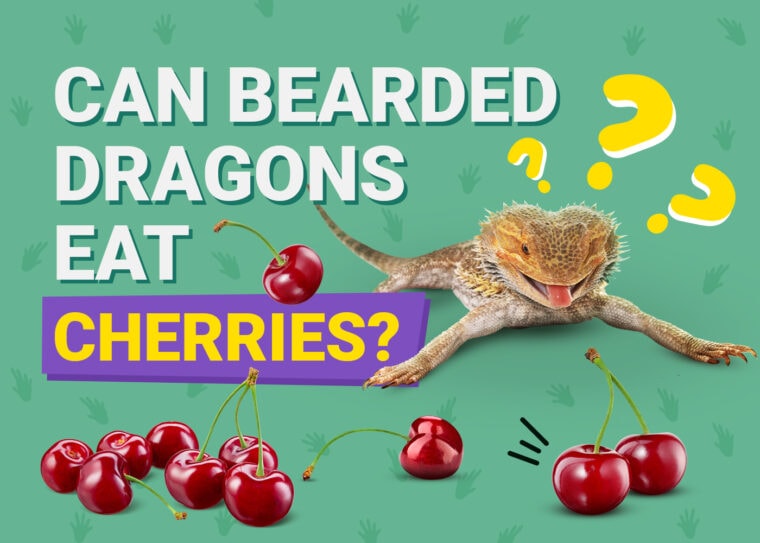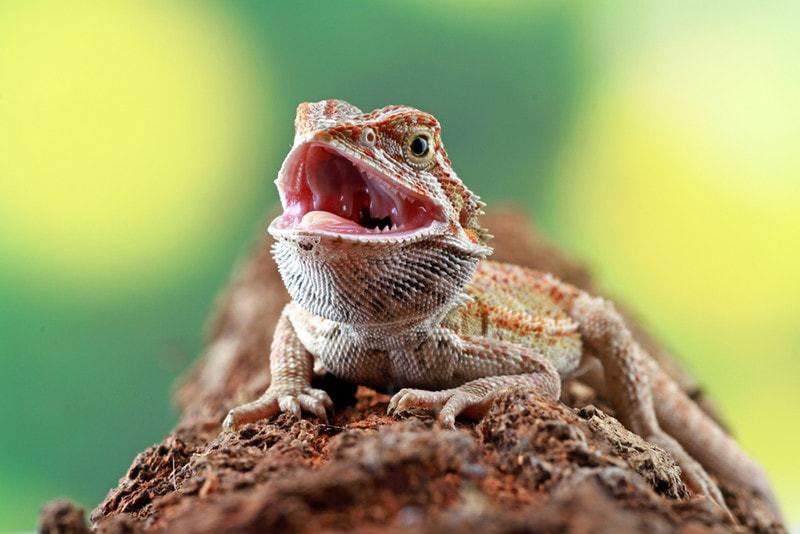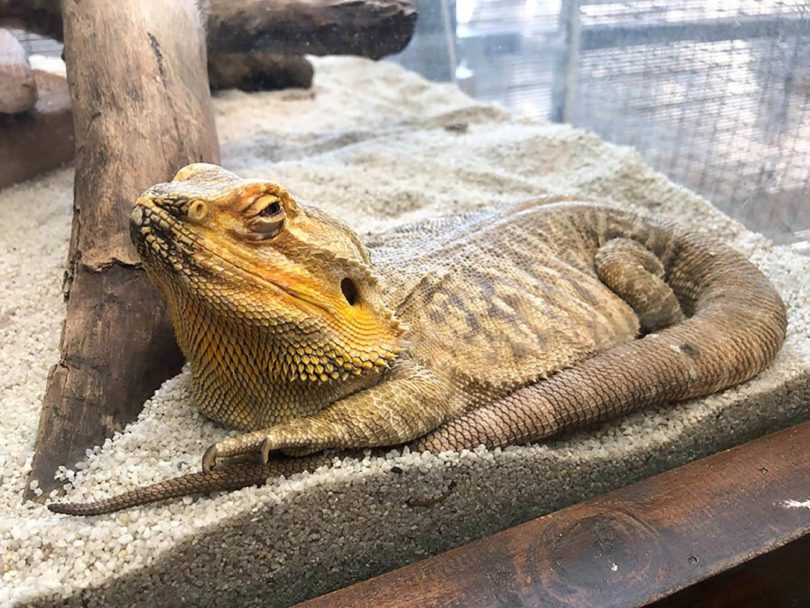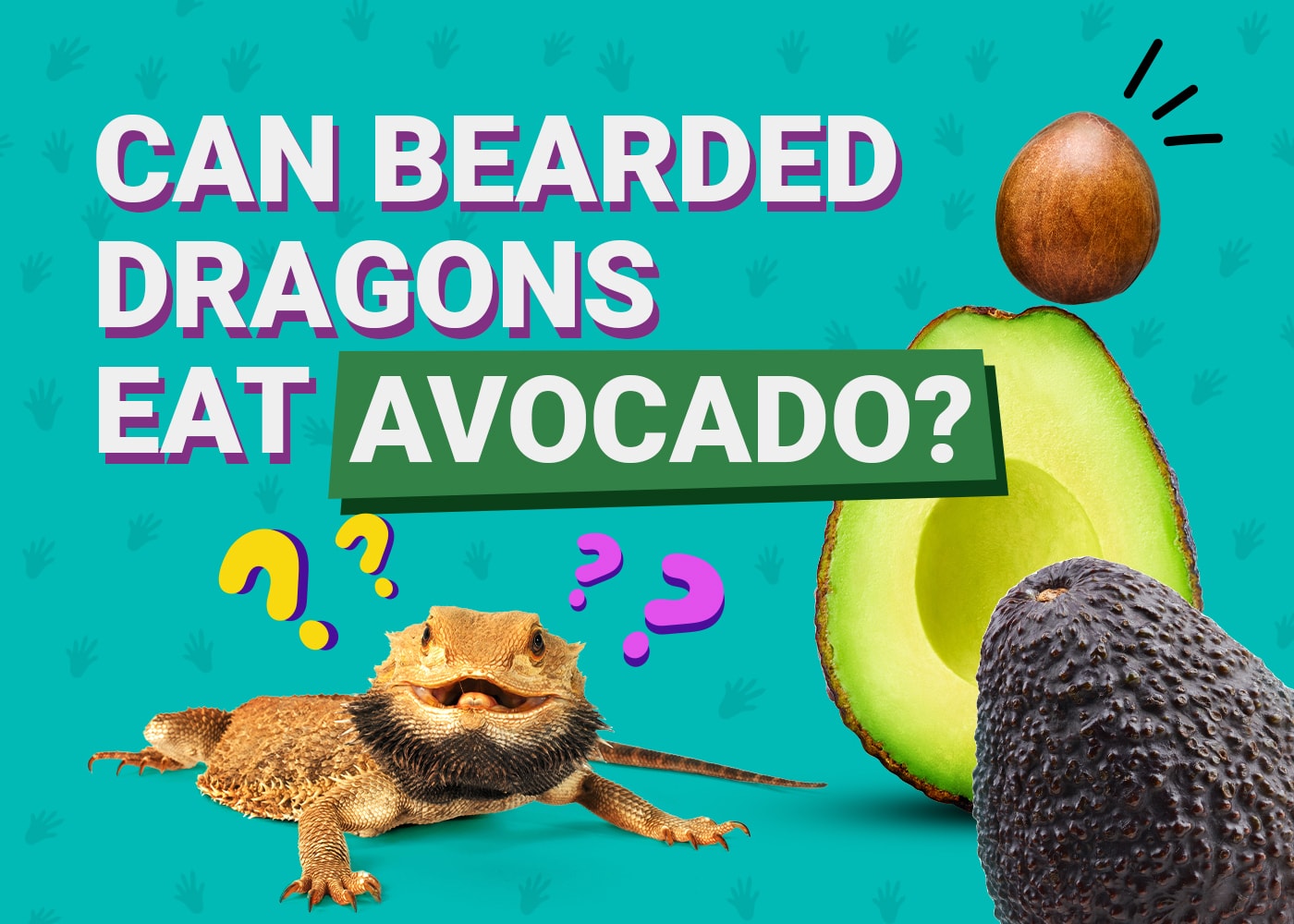
There is a bit of dispute about whether bearded dragons can eat cherries. All beardies need to eat veggies. However, determining which fruits and vegetables bearded dragons should eat can be confusing.
Technically, bearded dragons can eat cherries occasionally. They are not nearly as healthy as some other options, though. Instead of taking up a large portion of a beardie’s diet, they should function more like treats.
If you’re eating cherries and your bearded dragon eyes one, you can give it to them (following proper precautions). However, don’t go out of your way to feed cherries to your bearded dragon.
Cherries and Bearded Dragons
Cherries aren’t toxic or poisonous to bearded dragons and can be safely incorporated into their diet. However, like most fruits, cherries should be considered treats and not something that you should seek to incorporate into your bearded dragon’s diet on a daily basis. They do have potential downsides.
Like most fruits, cherries do offer your bearded dragon meaningful nutritional benefits1.
At a glance, cherries don’t score high in terms of nutritional value. They pale in comparison to many other fruits and vegetables when it comes to their nutrient composition.
Nonetheless, their low oxalate and goitrogen levels add merit to their benefits. Neither oxalates nor goitrogens are desired in a bearded dragon’s diet.

The Downsides of Cherries
Cherries are not without their issues. Chief among these is the amount of calcium and phosphorus that they contain.
Calcium and Phosphorus
For healthy adult bearded dragons in maintenance, their diet should have a calcium-to-phosphorus ratio of anywhere between 1.5:1 and 2:1. This means the calcium should be around twice as much as the phosphorus. The recommended ratio for juveniles is around 2:1, and dragons that are breeding (particularly females) require a much higher calcium intake compared to adults in maintenance.
In cherries, the calcium is much lower than the phosphorus, typically around 1:1.3. Phosphorus balance in the body requires that it be in the correct proportion with calcium. It binds to calcium, so when a bearded dragon is fed high amounts of phosphorus, their body responds by pulling calcium out from the bones to restore the proper levels of minerals and reduce the excess phosphorus in the bloodstream. Over time, the loss of calcium from bone mass can make the bones brittle and weak, leading to a condition called metabolic bone disease.
In addition, an inappropriate ratio of calcium to phosphorus is undesirable for the long-term health of a bearded dragon because it may predispose them to kidney or parathyroid issues. Therefore, cherries (like many other fruits) should be viewed as treats and not significant components of their daily salad servings.

Digestive Problems
Digestive issues may be observed if you feed too many cherries to your bearded dragon. The high water content of most fruits means consuming large numbers of them in a short span of time can lead to digestive distress that often manifests as episodes of diarrhea.
Sugar Content
Cherries are moderately high in terms of sugar content. Sugar is not directly associated with diabetes in bearded dragons. However, an overabundance of calories can lead to an obese pet, which isn’t healthy and may serve as a precursor for other diseases. The sugar in fruits may also be a contributing factor to dental disease in bearded dragons.

GMO Risk
Research has shown that treating cherry trees with oxalic acid (oxalates) prior to harvesting increases the size of the cherry fruit1. However, this process also increases the levels of other bioactive compounds in cherries. Non-modified cherries are relatively low in oxalates; 1 cup of cherries contains about 3 mg of oxalates. However, modified cherries might have higher levels of oxalates, though the exact amount remains to be determined.
Stem & Pits
Although cherries are safe for bearded dragons to consume, the stem and the pit of the fruit can be considerable risks, as they can lead to digestive problems in the form of impaction.

Choking Hazard
Cherries need to be chopped into small pieces before offering them to your bearded dragon. A whole cherry or a large chunk is a considerable choking hazard. For your pet’s safety, you should remove the stem, and then wash, slice, de-pit, and divide the cherry into four equal-sized pieces before offering your pet one piece.
Can Bearded Dragons Eat Canned, Frozen, or Dried Cherries?
On top of fresh cherries, these fruits come in many different forms. Dried, canned, or frozen cherries are different from fresh cherries, so let’s take a look.
Dried cherries should not be fed to beardies, as they are more concentrated in sugar and are tougher to chew. They are actually one of the worst forms of cherries that you can give your dragon, which is a big deal considering that cherries aren’t that great, anyway.
Canned cherries may or may not be okay. Some canned cherries contain added preservatives and ingredients, and these can be dangerous for bearded dragons. The ones that are canned in water and do not have any extra ingredients are better. In this situation, you’ll want to read the label to figure out whether the cherries are safe for your pet.

Frozen cherries are usually fine, as long as they don’t have any added ingredients. It is essential to read the ingredient list, though, as some do have added ingredients and preservatives. You want simple, plain cherries.
As always, it’s best to consult with your veterinarian as to which foods are best for your bearded dragon. Your veterinarian can formulate a meal plan for your bearded dragon that factors in variables like their age, life stage, and metabolic status.
Final Thoughts
When it comes to cherries and beardies, you should be careful with portion sizes. Whether your bearded dragon can handle a whole cherry depends on the size of your dragon and the size of the cherry. Most adult beardies will be able to handle at least one whole cherry, but you should remain on the safe side if you are unsure. Small dragons should be given less.
Don’t just hand the cherry to your bearded dragon, though. Their round size can make them difficult to eat and may cause the dragon to choke. While most dragons will attempt to chew up the cherry, some will try to swallow it whole. For this reason, you should generally avoid feeding whole cherries to your dragon. Instead, cut one cherry into fourths and offer it that way.
Related Reads:
- Can Bearded Dragons Eat Spinach? Vet-Approved Nutritional Science & Info
- Can Bearded Dragons Eat Blackberries? Vet-Approved Nutritional Science & Info
Featured Image Credit: klimkin, Pixabay









